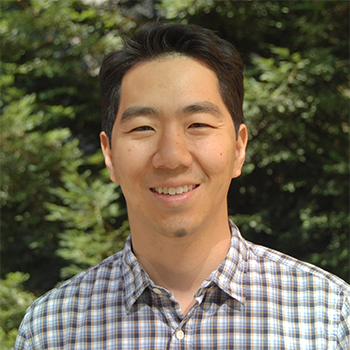Campus News
Biomolecular engineering professor wins American Cancer Society award to develop technology for cancer early detection
Assistant Professor of Biomolecular Engineering Daniel Kim won a four-year, $792,000 Research Scholar award from the American Cancer Society to support his work in developing RNA liquid biopsy technology to diagnose cancer early on.

UC Santa Cruz Assistant Professor of Biomolecular Engineering Daniel Kim’s research centers around the mysteries of RNA “dark matter,” which is made from 75% of the three billion base pairs in the human genome, with the goal of discovering new RNA biomarkers for cancer early detection to ultimately save lives.
Now, a four-year, $792,000 Research Scholar award from the American Cancer Society will support his work in developing RNA liquid biopsy technology to diagnose cancer early on.
Kim’s lab has discovered that certain cancers in their early stages release RNA “dark matter” into the blood as a result of key mutations to those genes which have the potential to drive cells into a cancerous state. Searching the blood for these secreted RNAs, which include several different types of “noncoding” RNA, is the crux of this novel liquid biopsy technology.
“I’m very excited to join the American Cancer Society family as a Research Scholar, and it’s an honor to be part of this amazing community that’s saving lives and leading the fight for a world without cancer,” Kim said. “Through the generous support of the American Cancer Society, we’ll be developing technology that will hopefully save many lives in the future by diagnosing cancer before it has spread throughout the body.”
Liquid biopsies are a minimally invasive method of diagnosing cancer, as compared to a traditional, more invasive tumor tissue biopsy. Most liquid biopsy approaches currently focus on DNA molecules that circulate in the blood, but Kim’s research is uncovering the vast potential of RNA as a diagnostic biomarker of cancer and other diseases.
The Kim lab is part of the Baskin School of Engineering, the Institute for the Biology of Stem Cells, the Genomics Institute, the Center for Molecular Biology of RNA, and affiliated with the Canary Center at Stanford for Cancer Early Detection.
“We are very grateful to the American Cancer Society, as well as all of our fantastic colleagues and wonderful collaborators who have helped us advance our efforts to develop RNA liquid biopsy technology for cancer early detection,” Kim said.